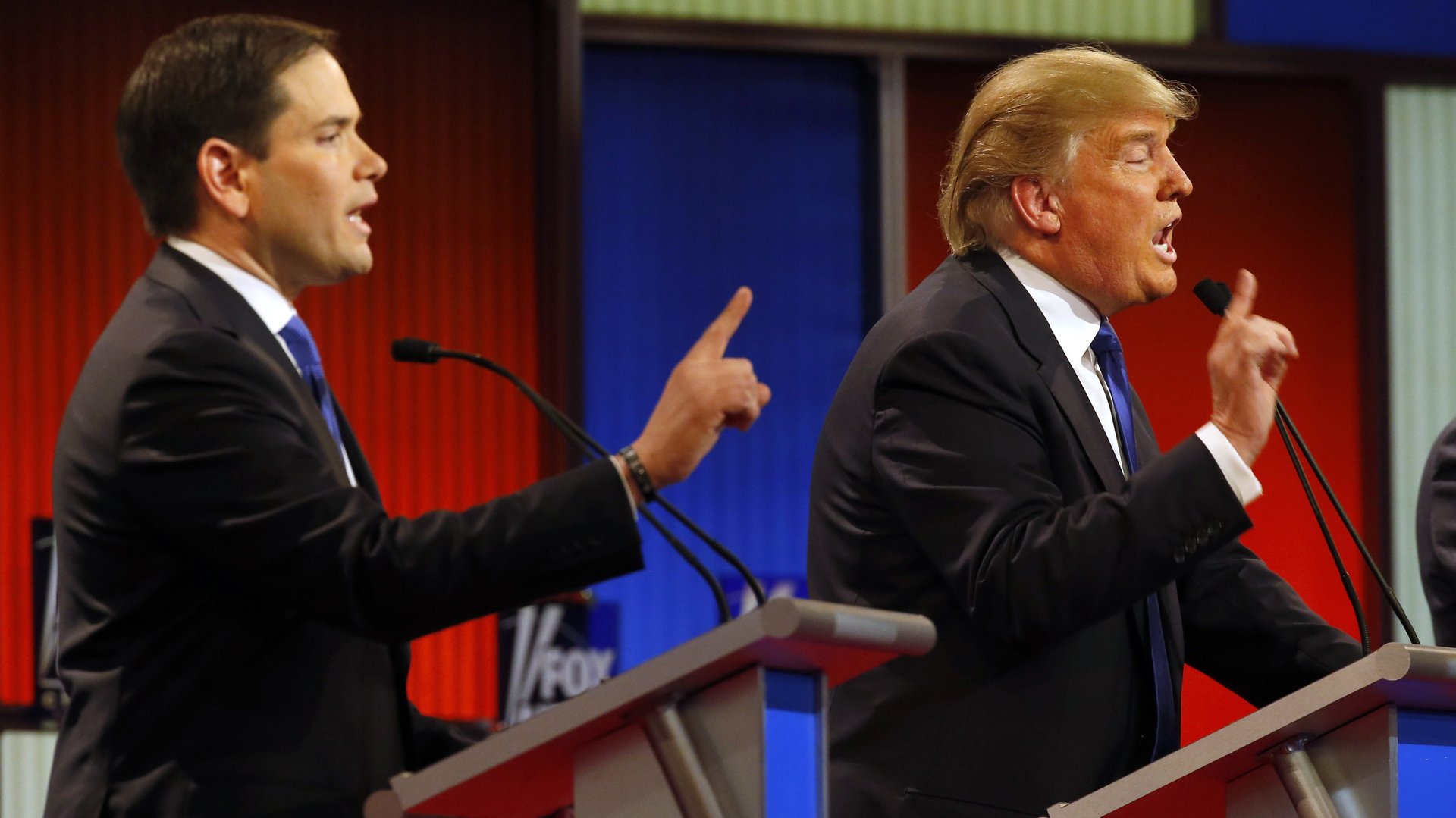Big-name US senators are joining the push to crack down on kleptocrat-friendly shell companies
Momentum seems to be growing in the bipartisan push to tackle secretive US shell companies. Since bills were introduced in late June in both the House and the Senate, the legislative movement has gained its first national figure: 2016 Republican presidential candidate senator Marco Rubio.


Momentum seems to be growing in the bipartisan push to tackle secretive US shell companies. Since bills were introduced in late June in both the House and the Senate, the legislative movement has gained its first national figure: 2016 Republican presidential candidate senator Marco Rubio.
Rubio, along with Ron Wyden, the top Democrat on the Senate Finance Committee, is putting forward a third such bill to force US firms to disclose to the Treasury who actually owns them. This, in theory, would stop kleptocrats, drug traffickers, and terrorist financiers from using anonymous shell companies to launder their cash—or at least make it easier for law enforcement to track them down.
Bills on the subject have floated around Capitol Hill for around a decade, but the crackdown effort has gained some speed since the leaked Panama Papers in 2016 revealed how secretive offshore companies enable a global web of corruption. The response in other parts of the world has left the US lagging behind, says Mark Hays of NGO Global Witness.
“The US is actually one of the easiest and most popular places to form a shell company without disclosing its ownership,” he said. “And, as the UK, the EU and other major hubs for financial activity begin to require people to disclose their company ownership, the US risks becoming an even more attractive haven for suspect funds.”
Even if they do pick up steam in Congress, however, the bills face major obstacles at the top: Both president Donald Trump and Treasury secretary Steve Mnuchin are big fans of shell companies. Around 70% of buyers of Trump properties in the last year were anonymous shell companies, according to USA Today, while ahead of his confirmation Mnuchin failed to disclose $100 million worth of assets held in a Cayman Islands shell company.